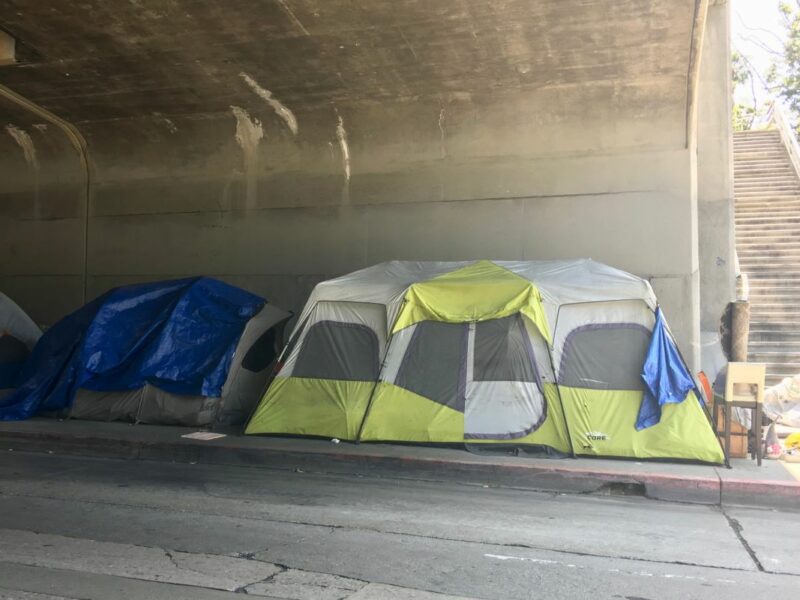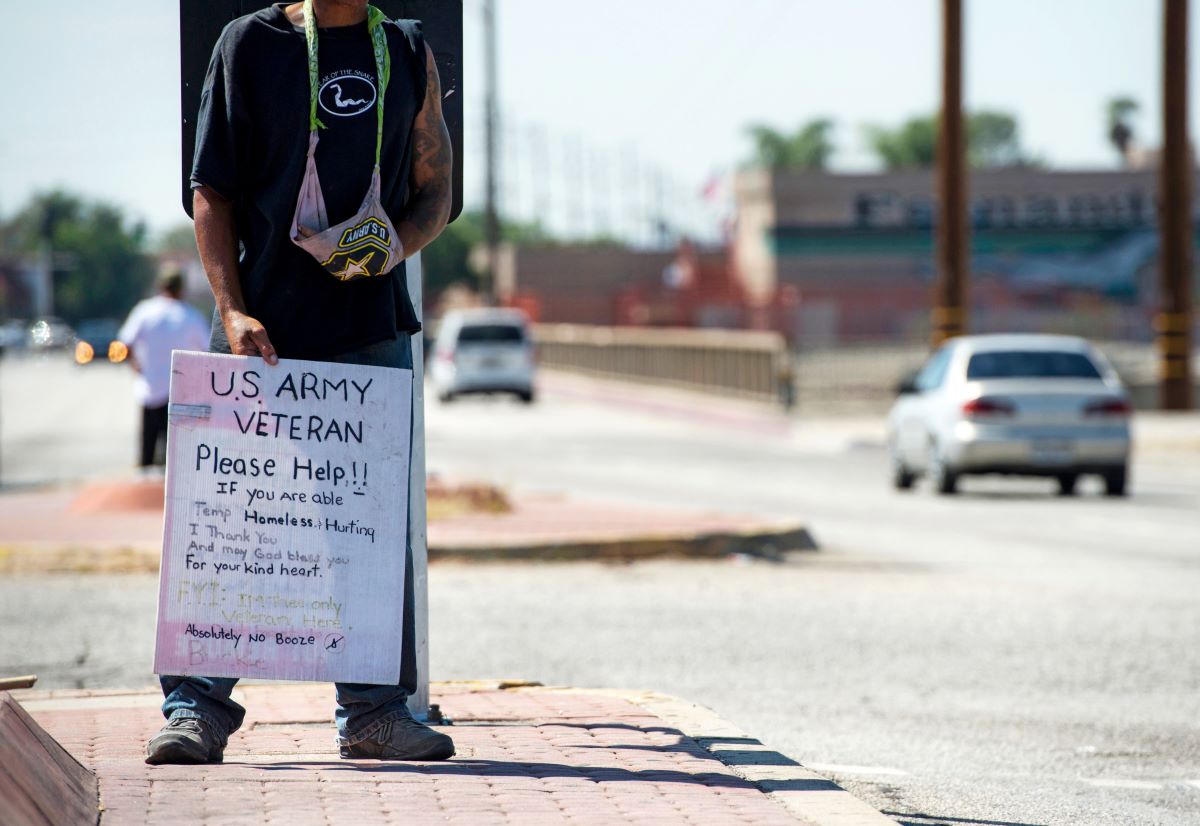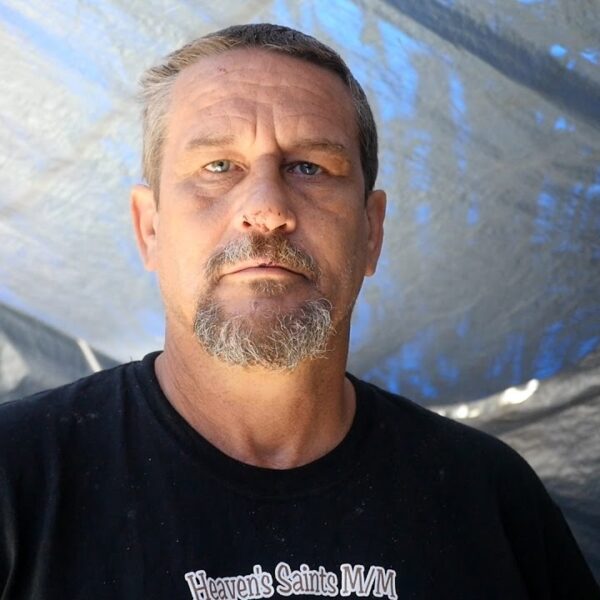“For me, being a veteran means that I have a period in my life that I’m probably most proud of,” is how one unnamed veteran explained the experience in a PEO Soldiers interview.
Other interviewees echoed the sentiment, using words like “proud,” “courageous,” “honored,” and “normal,” to name a few. Themes of sacrifice, teamwork, and seeking a deeper purpose are often associated with enlistment in the military. From our laptops, we see flying flags and floating footsteps leaving marks on the world.
But there’s a darker side to serving than many realize. There’s a haunting sense of trauma that many soldiers carry for the duration of their lifetimes. The physical and mental scarring can be downright life-shattering for some. And there’s something else, too – Homelessness.
The American soldier is 50% more likely to endure the hardship of not having a home than the average person who never served in the militia. There was a time when the ever-looming prospect of homelessness was about as bad as reality could get. That time is no more.
Under current legislation, veteran homelessness doesn’t just mean being cast out by the society you vowed to protect with your life. It also means you maybe spend the rest of that life behind bars.
Dear Legislators, What Are You Drafting?
In 2021, researchers for the Housing Not Handcuffs initiative revealed that 48 of our nation’s 50 states had statutes on the books aiming to criminalize homelessness. These laws, known commonly amongst advocates as anti-homeless legislation, make it effectively illegal for people experiencing homelessness to engage in the very activities that keep us alive. Examples include prohibitions on:
- Sitting
- Standing
- Sleeping
- Loafing
- Vagrancy
- Lying down, even if not asleep
- Changing clothes in public restrooms
- Loitering
- Panhandling and more
Camping bans make it illegal to pitch makeshift shelters like tents or to travel with “camping paraphernalia” such as rolled-up blankets, sleeping bags, shopping carts, tarps, hammocks, or other similar equipment. They exist all across the country as a way of criminalizing homelessness without publicly acknowledging this fact.
These laws don’t carry light punishments. They are not a way of encouraging unhoused people to move indoors, as is sometimes suggested by people in power. Instead, they allow prisons to fill up with people wrongfully deemed “unworthy” and “undesirable.”
In many cases, these are the very same people who once held titles like “soldier,” “private,” “captain,” and “general.” Today, they are held in general population.
In Tennessee, the punishment for public camping is a class E felony charge. If the charge results in a conviction, it means up to six years in prison and comes with a hefty $3,000 fine. To shed some perspective on this issue, other acts that are considered felonies punishable by imprisonment in Tennessee include the following:
- Rape
- Assault
- Murder
- Manslaughter
- Racketeering
- Money Laundering
- And kidnapping, to name a few
Even suggesting a homeless person’s attempt to exist in a rolled-up bag under the bright lights of a sleeping city is akin to any of the above is entirely ludicrous. But here’s perhaps a more critical question … is it patriotic?
Why U.S. Soldiers are Statistically More Likely to Become Victims of Anti-Homeless Legislation
From the moment of enlistment, veterans are already at a statistical disadvantage for being targeted by anti-homeless legislation. For one, they are already statistically more likely to become homeless. Additionally, if they become homeless, they are likely to be more visible than other unhoused individuals. There’s a reason so many people associate the image of a middle-aged male war veteran with a cardboard sign with homelessness, even though the reality is a lot more complex.
One of the main reasons homeless veterans are more visible is that many of them are unsheltered, meaning they live outside in spaces unfit for human habitation. The PIT count, which all authorities agree reflects a drastic undercount of homelessness, reveals 40,000 U.S. veterans sleeping on the city streets on a given night. But that number is likely much higher.
Perhaps they are not all sleeping. Perhaps some are lying, sitting, or even standing with their hands over their hearts, reflecting on their service to this country. It wouldn’t matter because all of these things are illegal in almost every state across the nation.
As a point of comparison, sheltered homeless individuals who reside doubled up with family members or in emergency shelters are much less visible and much less likely to be arrested for the alleged “crime” of being homeless. Since the state of homelessness equates to loss of freedom, one could say that they are experiencing a different kind of imprisonment, but one that won’t wind up on their record, marking them for a lifetime.
Drivers of Unsheltered Homelessness Amongst Veterans
Social isolation and difficulty returning to civilian life are the main reasons so many homeless veterans are sleeping rough. But even within the realm of homelessness, the odds are stacked against them. One example of this is in their statistical likelihood of disabilities.
U.S. veterans have always exhibited a higher likelihood of disabilities. Previous generations of vets possessed 25% disability ratings. Today’s returning soldiers exhibit an even higher likelihood.
According to Military.com, the Bureau of Labor Statistics claims “41 percent of Gulf War-era II [post-9/11] veterans had a service-connected disability.”
America’s emergency shelter system harbors several ugly truths. One of them is its inaccessibility to people with disabilities. When the Chicago Tribune probed deeply into the disturbing trend, they found that many of their metropolitan shelters were ill-equipped to house people with disabilities. Witnesses claim they were turned away from homeless shelters if they could not carry their own bags or walk up and down the stairs.
To recap, if a soldier returns from the service and lacks support, they are more likely to become homeless.
If this homelessness is caused by sentiments of social isolation, disabilities, or difficulty adjusting to civilian life, it is more likely to be unsheltered.
When an individual endures unsheltered homelessness, they are more likely to be targeted by anti-homeless legislation.
When a person is convicted of a public camping or vagrancy violation and winds up in prison, they are 11 times more likely to become homeless again upon release.
Becoming homeless for a second time increases their chances of being arrested, making them 11 times more likely to be arrested than people with homes. Even if they somehow evade a new set of charges, their previous conviction will continue adversely affecting their housing and employment opportunities. This isn’t just taxpayer dollars at work but a mirror held up to the entire dysfunctional system.
Talk to Your Legislators About Drafting Laws that Protect People from Homelessness
Legislators claim to represent the American people. Yet they are drafting laws that disproportionately target American soldiers and create a hostile environment for former soldiers. Lengthy prison sentences and a lifetime of shuffling from street corners to prison cells should not follow service in the military.
Talk to your local legislators about reversing anti-homeless legislation and making housing a human right.













